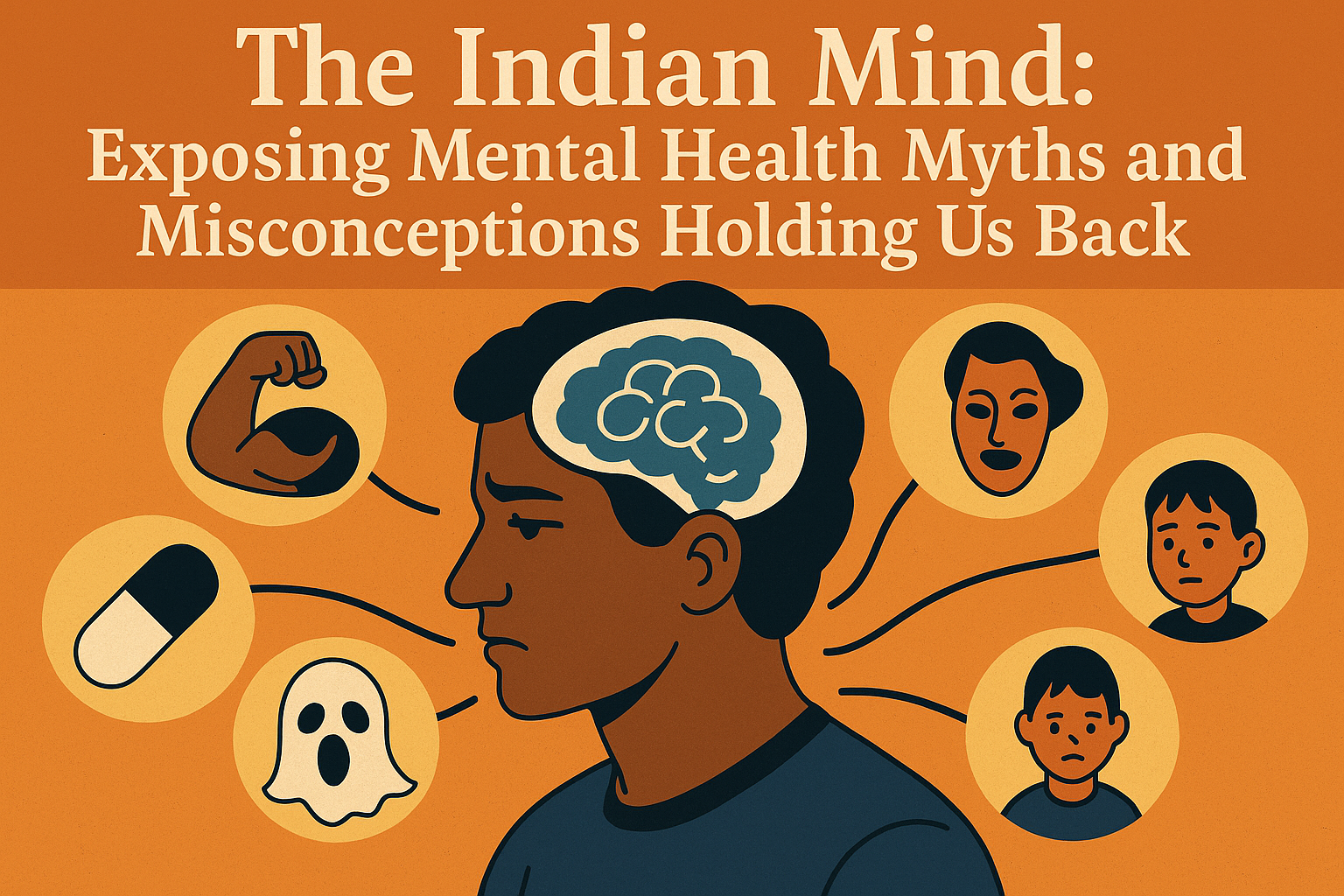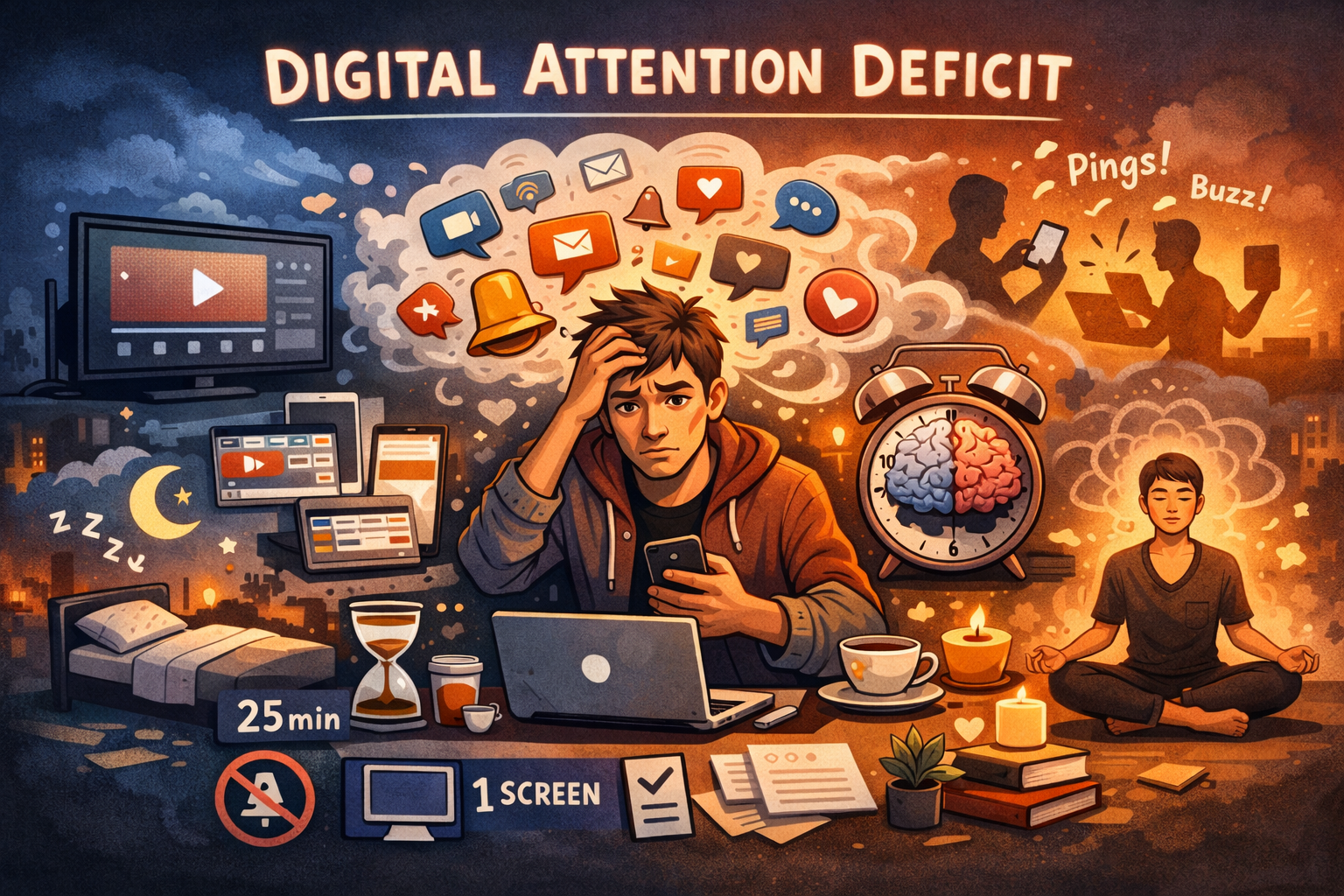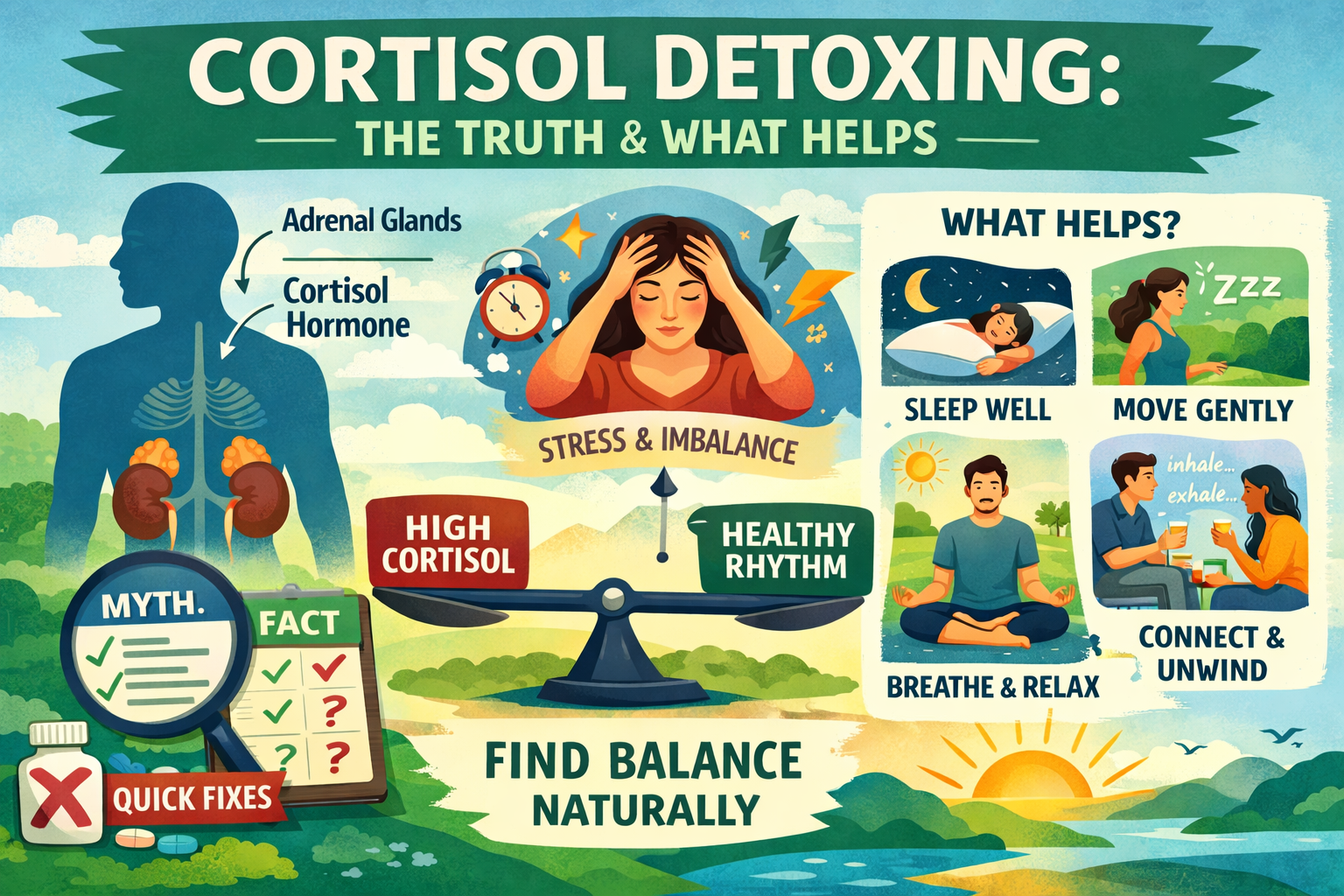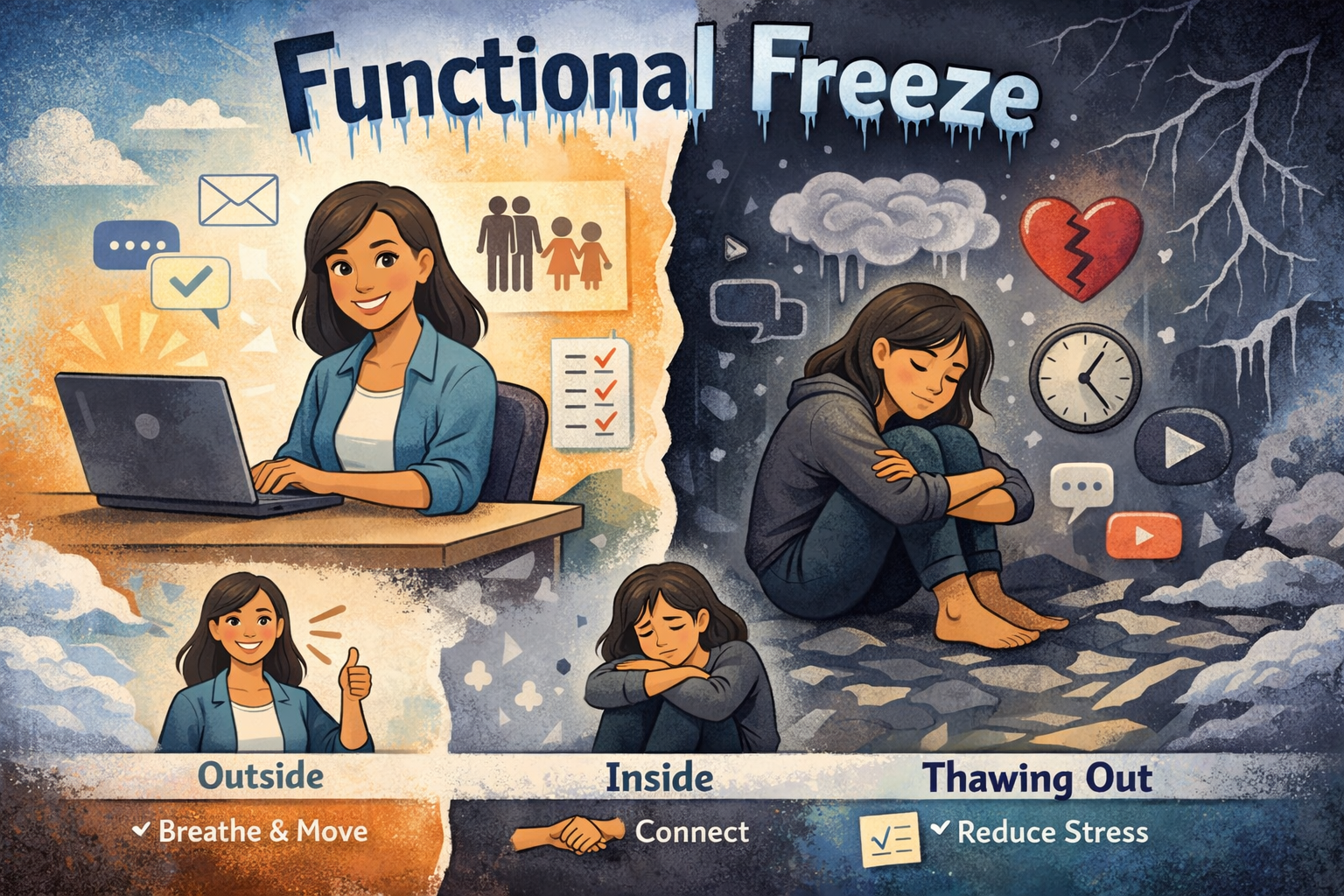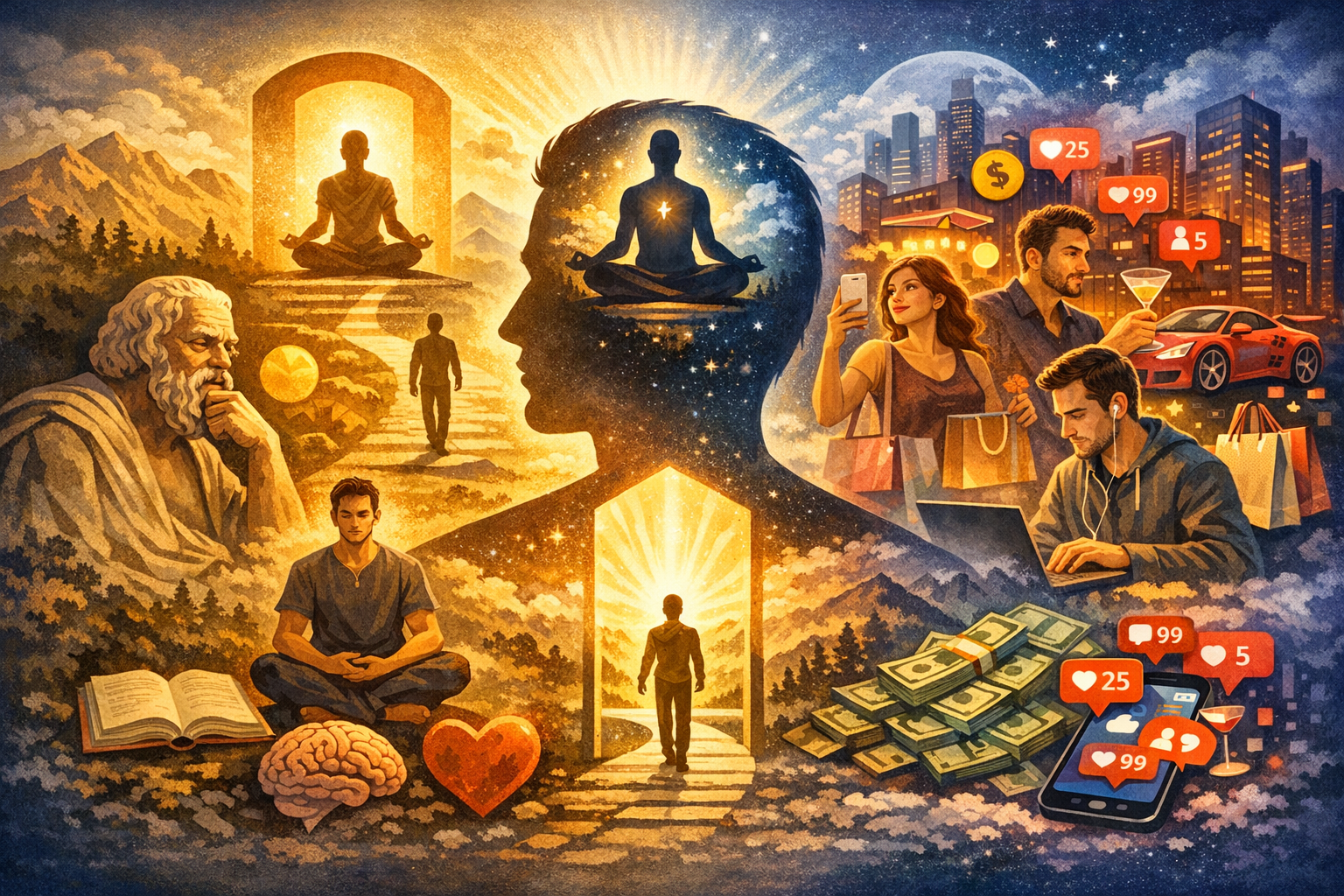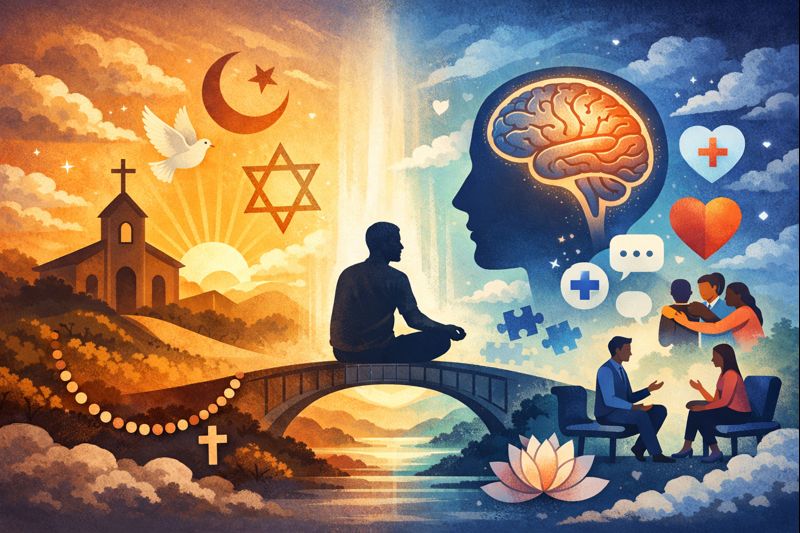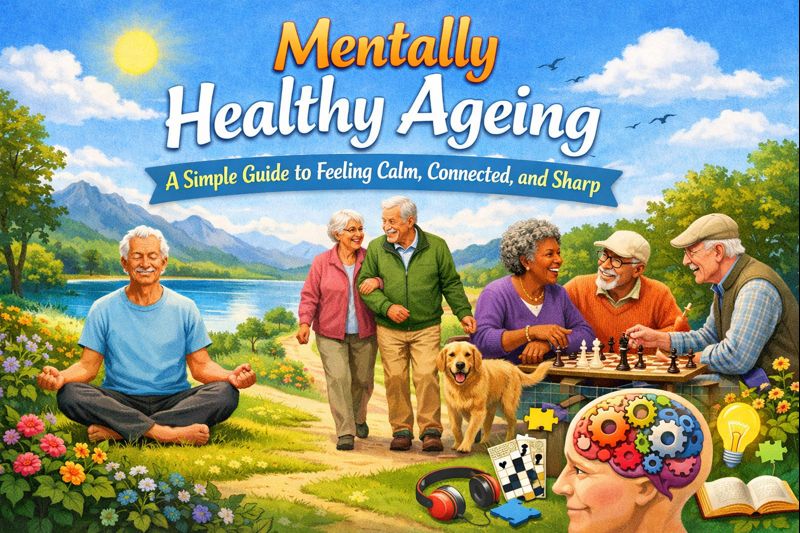Indeed, mental health plays a crucial role in our overall well-being. Yet the country struggles with many
myths and misconceptions that restrict our awareness level, acceptance of such problems, and their
diagnosis and treatment. Despite increasing discussions, debates, media talks, and live shows, many
of us still hold age-old and regressive beliefs and perceptions relating to mental health; we have not
been able to eliminate many of those misconceptions from Indian society. As a result, many of those
who suffer from mental health problems don’t come out openly to discuss their issues and seek
professional help.
Common misconceptions that are prevalent in society lead to discrimination, loneliness, and shame for
people suffering. Conducted by NIMHANS, the National Mental Health Survey (NMHS) 2015-16
showed that over 80% of with mental illnesses did not receive any treatment over the previous year. Of
the main obstacles noted, over 40–50% of respondents mentioned stigma and ignorance as the ones
keeping them from obtaining treatment. These figures highlight the urgent need to eradicate the false
ideas and misconceptions that hinder access to mental health treatment.
Mental illness is still viewed in many areas of the nation as evidence of either personal weakness,
divine retribution, or even possession by evil spirits. Particularly in rural and conservative areas, these
misperceptions discourage people from getting timely care.
Although an increasing number of people, particularly from the younger generation, are overcoming
this mental and psychological barrier, much more needs to be accomplished, especially in rural and
semi-urban areas. They suffer silently due to this invisible menace of mental crisis.
Thanks to AI chatbots on mental health, available 24x7, we can expect better prospects for universal
accessibility. An increasing number of people are now discussing their problems with AI counsellors
and therapists. AI chatbots are even trained for Cognitive Behaviour Therapy (CBT) sessions. This very
development should make a difference in the way we perceive mental health.
Understanding Mental Health: Beyond the Myths
Mental health broadly refers to our emotional, mental, psychological, and social well-being. It
influences how we think, feel, and behave and make choices on a day-to-day basis. Mental health
affects how the sufferer tackles stress, ups and downs, and challenges we all face during our life
journey. If the problem gets severe, then it may impact their routine life, and they fail to live normally. In
India, mental health problems are often perceived wrongly, and people are misunderstood.
Behind the misconceptions, factors such as lack of awareness and education, cultural inhibitions, and
social stigma and taboos are largely responsible. So, the individuals suffer in silence. They face
discrimination and get treatment not on time. In many cases, the problem gets out of hand, and they
are trapped badly in a vicious circle.
Common Misconceptions and Myths about Mental Health in India
Myth 1: Mental Illness is a sign of weakness
Many people think mental health issues develop because of personal weakness and lack of willpower
to handle routine life’s challenges. The misplaced understanding acts as an obstacle for people to
recognize their mental challenges and seek medical assistance. Mental illnesses exist as medical
conditions that develop from the combination of genetic, biological, environmental, and psychological
factors. Proper diagnosis and treatment become necessary for these mental health
conditions, just like physical illnesses.
Myth 2: Mental Health Issues are not serious, also not so common
Indian society tends to underestimate or ignore mental health issues by viewing them as short-lived
mood swings and typical reactions to mental stress. According to the World Health Organization (WHO),
mental disorders affect one out of seven people who live in India. Depression, along with anxiety
and schizophrenia, impacts life quality when sufferers fail to get proper treatment.
Myth 3: Only “mad and crazy” people need mental health care.
The belief that widespread social exclusion and fear. People of all mental health conditions receive
professional help at any level of emotional distress they experience. Early medical intervention helps
stop symptom progression while leading to better treatment results.
Myth 4: Mental Illness is a curse, a result of past’s life sins (Karma)
Indian cultural beliefs maintain the superstition that mental illness stems from supernatural forces or
from past karma within their communities. The beliefs create feelings of guilt and loneliness that block
affected people from receiving support services. Modern psychiatry views mental illnesses as
medical health issues rather than punishments or supernatural curses.
Myth 5: Talking about mental health brings bad luck and/or the shame
Indian society still maintains a general prohibition against mental health discussions, which results in
both secrecy and denial behavior. The continued silence about mental health problems makes
suffering worse while also prolonging the time before people seek assistance. When people discuss
mental well-being openly, it helps create spaces where mental health problems become normal topics
of conversation.
Myth 6: Medication is the only treatment for mental illness
The management and treatment of many of the mental health disorders heavily depend on
medication, but therapy along with lifestyle changes and social support serve very important roles. The
best treatment outcomes emerge from personalized holistic methods that address specific patient
needs.
Myth 7: Children and adolescence don’t experience mental health illnesses
Mental health problems exist across every age group, including the young generation. Children who
receive proper support at an early stage can avoid serious negative outcomes while growing healthily.
Why These Myths Persist in India
Multiple factors concerning mental health continue to exist and impact people’s perceptions, leading to
the persistence of myths and misconceptions in India.
-
Lack of Awareness: Limited awareness and education about mental health in schools and
communities leads to misconceptions. -
Social stigma, together with fear of discrimination, prevents people from having open dialogues
and discussions. -
Regressive Cultural Beliefs: The traditional and age-old perspective frequently connects mental
illness to either supernatural beliefs or moral failures. -
Shortage of mental health practitioners: Acute short supply of mental health professionals
along with inadequate infrastructure, especially in rural India, is a very important factor in the
continuation of myths surrounding mental health. -
Media coverage: Insensitive and one-sided coverage of mental issues in the media and press
leads to misleading and incorrect reporting, again impacting the public's perception of mental health
cases.
The Importance of Debunking Myths for Better Mental Health
Dispelling misconceptions and myths about mental health is vital for the following reasons:
-
Encourage people to be aware and seek professional help: The right kind of knowledge will
empower people to recognize early warning signals and seek timely help from mental health
professionals. -
Eliminate social stigma: Understanding and knowing mental health-related symptoms as a
medical condition will help people eliminate stigma surrounding mental health illnesses. -
Formulate appropriate policy interventions and create infrastructure for providing
services: Awareness drives demand for required infrastructure and resources meant for mental
health. -
Support and assist families and communities: Well-aware and educated communities can
provide better support systems for the people.
To dispel myths about mental health, we need to take collective action on multiple fronts. The following
steps are required to proceed in the desired direction:
-
Spreading awareness through educational institutions: The right kind of knowledge on
mental health will help students to be aware and detect early warning signals and take counselling
from the counsellors working in schools and colleges. Hopefully, AI therapy will help in spreading
awareness among the younger population. -
Understanding mental health as a medical condition allows society to adopt more
empathetic and inclusive attitudes towards those who suffer from mental health conditions. -
Policies and services improve when awareness grows because it generates higher demand
for mental health infrastructure and resources. -
Educated communities create better support networks that benefit both their members and
their families.
Steps toward Changing Mental Health Perceptions in India
-
Education Campaigns: Schools, workplaces, and media can spread factual information on
mental health. -
Community Engagement: Involving local leaders and influencers helps challenge cultural
taboos. -
Training Healthcare Providers: Equipping frontline workers to identify and address mental
health issues improves access. -
Promoting Open Dialogue: Creating safe spaces for conversations reduces fear and isolation.
-
Policy Advocacy: Strengthening mental health laws and funding ensures sustainable support
systems.
Conclusion
Mental health-related myths and misconceptions are major challenges to mental well-being. Even
though the situation is rapidly improving, particularly among the younger generation, significant efforts
remain. The action is needed on multiple fronts, right from spreading awareness and building
compassion and empathy for those suffering from mental health problems to the right kind of policy
interventions for developing required infrastructure and professional support systems.
To begin with, people must be encouraged first to discuss their mental health-related issues with their
family members, friends, and colleagues. Then the journey will automatically begin for a healthy,
inclusive nation.
Are you looking for inner peace, deep relaxation or holistic solutions for mental health? Visit http://themindtherapy.in - your space for online counselling/therapy, free mental health tests, meditation, sound therapy etc.
Mind Therapy is India's trusted platform for mental health, mindfulness, and holistic healing. Explore expert-led programs, guided meditation, sound therapy and counselling at http://themindtherapy.in


